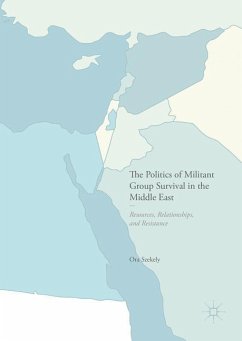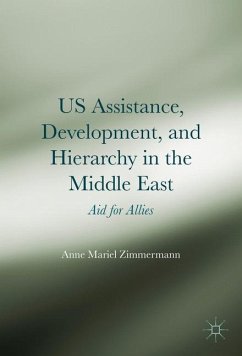
Eradicating Terrorism from the Middle East
Policy and Administrative Approaches
Herausgegeben: Dawoody, Alexander R.

PAYBACK Punkte
38 °P sammeln!
This book analyzes the contributing factors responsible for the emergence of terrorism in the Middle East with specific case studies based on empirical data that anchors the analyses in real life observation and posits unbiased, bipartisan solutions. Terrorists are targeting civilian populations around the world and increasing pressure on civil liberties, public policy and democratic institutions. With the defeat of one terrorist organization several more take its place. This book includes case studies in public administration initiatives from various Middle Eastern countries, and investigates...
This book analyzes the contributing factors responsible for the emergence of terrorism in the Middle East with specific case studies based on empirical data that anchors the analyses in real life observation and posits unbiased, bipartisan solutions. Terrorists are targeting civilian populations around the world and increasing pressure on civil liberties, public policy and democratic institutions. With the defeat of one terrorist organization several more take its place. This book includes case studies in public administration initiatives from various Middle Eastern countries, and investigates regulation, public information, monetary and financial responsibilities, security, and civic infrastructure as possible solutions to this ever-worsening problem. With terrorism emerging as a major global policy issue this book speaks to global security and public policy and administrative issues in the Middle East, and will be of interest to researchers in terrorism and security in the MiddleEast, public administration, international relations, political economy, and to government officials, security analysts and investors.












